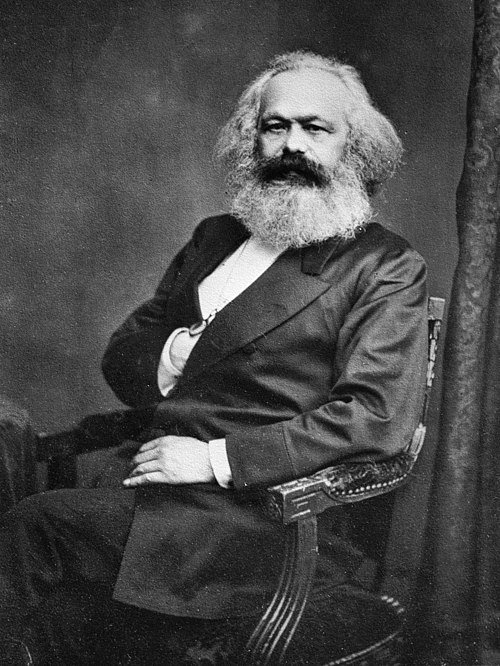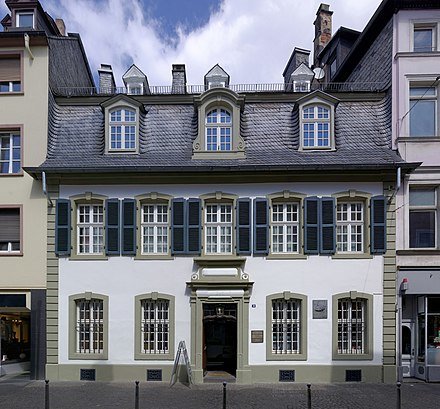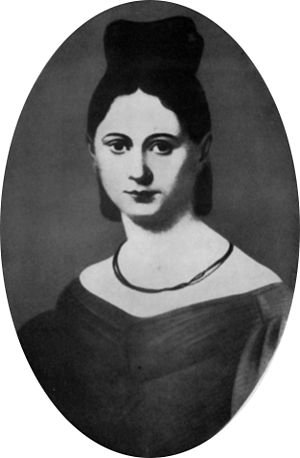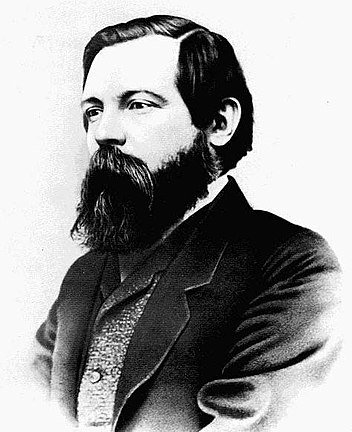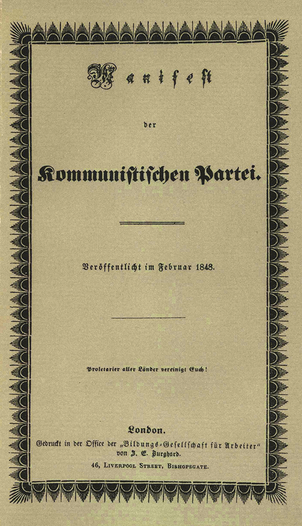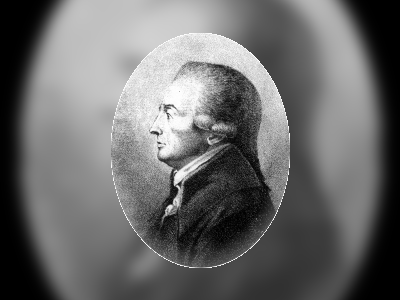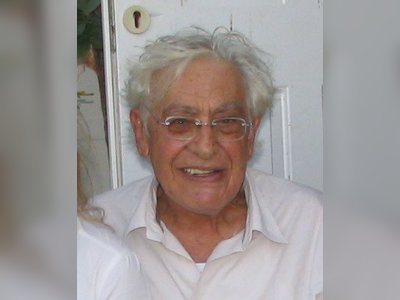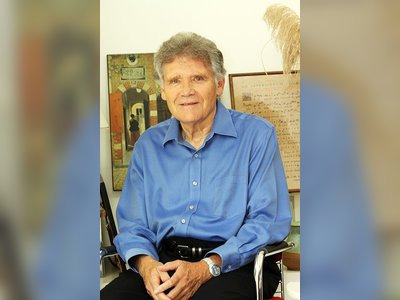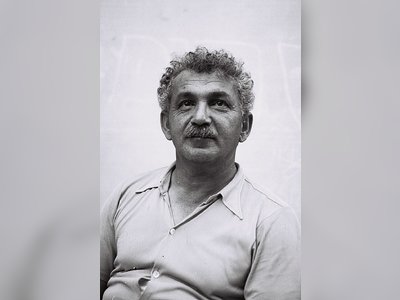מורשת גדולי האומה
בזכותם קיים
beta
Karl Marx: The Revolutionary German Thinker
Karl Heinrich Marx, born on May 5, 1818, and passing away on March 14, 1883, was a philosopher, economist, sociologist, historian, journalist, and revolutionary socialist of German-Jewish descent. His intellectual and theoretical work laid the foundation for analyzing the modern industrial order and served as the cornerstone for subsequent critiques of capitalism. Throughout his life, Marx published numerous articles and books, including his most famous works, the Communist Manifesto (1848) and Das Kapital (1867), better known as "Capital."
Marx was born into a middle-class family in Trier, a town in the Rhine Province of Prussia (now Germany). His family had a long history of rabbis, but Marx later studied political economy and philosophy at the universities of Bonn and Humboldt in Berlin. In later years, he became stateless and spent most of his life in London, where he continued to develop his ideas in collaboration with the German thinker Friedrich Engels. Marx's theoretical work had a profound impact on political, economic, and philosophical thought.
Marx's theories on society, economics, and politics, known as Marxism, assert that human societies have evolved through class struggles. Under capitalism, the primary conflict arises between the bourgeoisie, who control the means of production, and the proletariat, who sell their labor in exchange for wages. Drawing on his critical theory known as dialectical materialism, Marx argued that capitalism inherently generates internal contradictions that would ultimately lead to its self-destruction, replaced by a new system: socialism. According to Marx, the class struggle under capitalism would engender proletarian consciousness, enabling the formation of a socialist society devoid of classes, fostering social and economic liberation based on the free association of creative individuals.
Marx is undoubtedly one of the most influential figures in modern human history. His work has received both praise and criticism. His writings formed the basis for understanding the modern conflict between labor and capital and inspired prominent economic theories. Philosophers, intellectuals, labor unions, creators, artists, and political parties worldwide have been influenced by Marx's ideas. Moreover, he is regarded as one of the key architects of modern social sciences.
Karl Heinrich Marx was born on May 5, 1818, in Trier, a town in the Rhine Province of Prussia (now part of Germany), to a family of Ashkenazi Jewish descent. On his mother's side, Henriette Pressburg (née Marx), who was of Dutch-Jewish heritage, his male relatives served as rabbis for many generations. His father, Heinrich (Hirschel) Marx, descended from the Levy family in Trier, whose ancestors had been rabbis since 1723. Heinrich Marx, a lawyer from a middle-class background, owned vineyards in the region.
During the Napoleonic rule in the Rhine region, Heinrich Marx became involved in legal matters due to partial emancipation that allowed Jews some rights under French rule. However, with the return of Trier to Prussian control in 1812, a decree was issued that restricted Prussian Jews from holding public office and engaging in certain professions. Because Judaism was more of an ethnic identity than a deeply held religious belief for Marx's father, he chose to convert to Protestantism, even before the birth of his son Karl. This choice was not entirely accidental, as Protestantism was a minority religion in the Trier region, contrasting with the Catholic majority, and the urban elite consisted mainly of Protestants. Marx's father, after his conversion, officially became Heinrich Marx. He was influenced by French Enlightenment ideas but was cautious not to express revolutionary opinions.
Marx's mother, Henriette, was well-educated and took care of the family. She was often described as having "an exaggerated motherly love" for her children. Henriette and her son Karl maintained a close relationship even after he left Trier. Despite their differences, Karl and his mother exchanged letters and occasionally, he pleaded for financial support, which often put a strain on their relationship. Little is known about Karl Marx's childhood. He was the third of nine children and the eldest surviving son after the death of his older brother Moritz in 1819. Until 1830, Marx received private education, after which he attended the Trier Gymnasium, where most of the teachers were liberal humanists, and the headmaster was Hugo Wyttenbach, a friend of Heinrich Marx. At the age of 17, in October 1835, Marx left for the University of Bonn. His frail health, which had plagued him since childhood, worried his parents. In a letter they sent him at the beginning of his studies, they implored him "to abstain from anything that might worsen his condition (...) not to drink much wine or coffee and to avoid spicy food (...)". His mother requested that he refrain from smoking altogether and not stay up or rise too early.
Shortly before his 18th birthday, Marx was exempted from Prussian military service due to his weak constitution. He received an official "certificate of release" from the University of Bonn, praising his academic achievements but also noting a one-day suspension due to disorderly conduct, which followed a night of drinking and unruly behavior. Although Marx acted recklessly during his time in Bonn, he was involved in the Poets' Club, where discussions on poetry and rhetoric often evolved into passionate debates on politics and the state. In one of the frequent brawls that broke out in the taverns of Bonn in 1836, Marx engaged in a duel with a soldier on leave, a member of the "Borussia Corps," a nationalist youth organization that demanded an oath of allegiance to the Prussian nobility from enthusiastic students. Fortunately, Marx suffered only a minor head wound. His youthful behavior, however, led his parents to support his desire to move to Berlin to pursue a more serious and professional education at the university.
Several months before beginning his studies in Berlin, Marx spent the summer in his hometown, where he became engaged to Jenny von Westphalen, a baroness with a high social status from the Prussian aristocracy. Jenny and Karl had been childhood friends, but her previous engagement with another man, which she broke off to marry Marx, was not well-received by society due to differences in social class and ethnic background. Nonetheless, these societal obstacles did not deter Marx from forging a deep friendship with his future brother-in-law, Ludwig von Westphalen, who later became the dedicatee of Marx's doctoral dissertation.
Marx's theories on society, economics, and politics, known as Marxism, assert that human societies have evolved through class struggles. Under capitalism, the primary conflict arises between the bourgeoisie, who control the means of production, and the proletariat, who sell their labor in exchange for wages. Drawing on his critical theory known as dialectical materialism, Marx argued that capitalism inherently generates internal contradictions that would ultimately lead to its self-destruction, replaced by a new system: socialism. According to Marx, the class struggle under capitalism would engender proletarian consciousness, enabling the formation of a socialist society devoid of classes, fostering social and economic liberation based on the free association of creative individuals.
Marx is undoubtedly one of the most influential figures in modern human history. His work has received both praise and criticism. His writings formed the basis for understanding the modern conflict between labor and capital and inspired prominent economic theories. Philosophers, intellectuals, labor unions, creators, artists, and political parties worldwide have been influenced by Marx's ideas. Moreover, he is regarded as one of the key architects of modern social sciences.
Karl Heinrich Marx was born on May 5, 1818, in Trier, a town in the Rhine Province of Prussia (now part of Germany), to a family of Ashkenazi Jewish descent. On his mother's side, Henriette Pressburg (née Marx), who was of Dutch-Jewish heritage, his male relatives served as rabbis for many generations. His father, Heinrich (Hirschel) Marx, descended from the Levy family in Trier, whose ancestors had been rabbis since 1723. Heinrich Marx, a lawyer from a middle-class background, owned vineyards in the region.
During the Napoleonic rule in the Rhine region, Heinrich Marx became involved in legal matters due to partial emancipation that allowed Jews some rights under French rule. However, with the return of Trier to Prussian control in 1812, a decree was issued that restricted Prussian Jews from holding public office and engaging in certain professions. Because Judaism was more of an ethnic identity than a deeply held religious belief for Marx's father, he chose to convert to Protestantism, even before the birth of his son Karl. This choice was not entirely accidental, as Protestantism was a minority religion in the Trier region, contrasting with the Catholic majority, and the urban elite consisted mainly of Protestants. Marx's father, after his conversion, officially became Heinrich Marx. He was influenced by French Enlightenment ideas but was cautious not to express revolutionary opinions.
Marx's mother, Henriette, was well-educated and took care of the family. She was often described as having "an exaggerated motherly love" for her children. Henriette and her son Karl maintained a close relationship even after he left Trier. Despite their differences, Karl and his mother exchanged letters and occasionally, he pleaded for financial support, which often put a strain on their relationship. Little is known about Karl Marx's childhood. He was the third of nine children and the eldest surviving son after the death of his older brother Moritz in 1819. Until 1830, Marx received private education, after which he attended the Trier Gymnasium, where most of the teachers were liberal humanists, and the headmaster was Hugo Wyttenbach, a friend of Heinrich Marx. At the age of 17, in October 1835, Marx left for the University of Bonn. His frail health, which had plagued him since childhood, worried his parents. In a letter they sent him at the beginning of his studies, they implored him "to abstain from anything that might worsen his condition (...) not to drink much wine or coffee and to avoid spicy food (...)". His mother requested that he refrain from smoking altogether and not stay up or rise too early.
Shortly before his 18th birthday, Marx was exempted from Prussian military service due to his weak constitution. He received an official "certificate of release" from the University of Bonn, praising his academic achievements but also noting a one-day suspension due to disorderly conduct, which followed a night of drinking and unruly behavior. Although Marx acted recklessly during his time in Bonn, he was involved in the Poets' Club, where discussions on poetry and rhetoric often evolved into passionate debates on politics and the state. In one of the frequent brawls that broke out in the taverns of Bonn in 1836, Marx engaged in a duel with a soldier on leave, a member of the "Borussia Corps," a nationalist youth organization that demanded an oath of allegiance to the Prussian nobility from enthusiastic students. Fortunately, Marx suffered only a minor head wound. His youthful behavior, however, led his parents to support his desire to move to Berlin to pursue a more serious and professional education at the university.
Early Years in Berlin: 1836-1843
Several months before beginning his studies in Berlin, Marx spent the summer in his hometown, where he became engaged to Jenny von Westphalen, a baroness with a high social status from the Prussian aristocracy. Jenny and Karl had been childhood friends, but her previous engagement with another man, which she broke off to marry Marx, was not well-received by society due to differences in social class and ethnic background. Nonetheless, these societal obstacles did not deter Marx from forging a deep friendship with his future brother-in-law, Ludwig von Westphalen, who later became the dedicatee of Marx's doctoral dissertation.
- קרל מרקסhe.wikipedia.org
